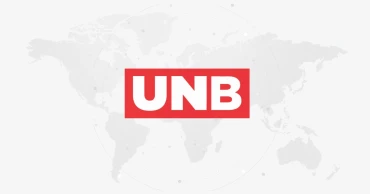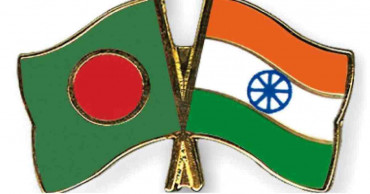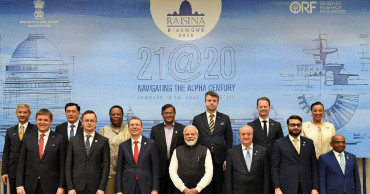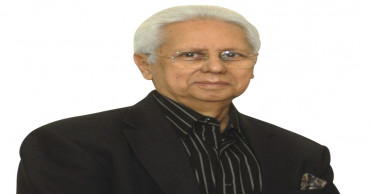S Jaishankar
'Spokesperson for terror industry': Jaishankar refers to Pakistani Foreign Minister Bilawal
S Jaishankar, India’s foreign minister, has labelled his Pakistani counterpart, Bilawal Bhutto Zardari, as “promoter, justifier and spokesperson of a terrorism industry”.
Following the meeting of foreign ministers of member countries of the Shanghai Cooperation Organisation (SCO) in Goa, Jaishankar remarked: “Victims of terrorism do not sit together with its perpetrators to discuss terrorism.”
“Bhutto Zardari came as Foreign Minister of a SCO member state; that’s part of multilateral diplomacy and we don’t see anything more than that,” NDTV quoted the Indian foreign minister as saying.
The SCO meeting was held in Goa, India, on May 4 and 5, and Bhutto Zardari arrived in India on Thursday.
At the SCO Council, the two foreign ministers did not meet separately.
In a clear swipe at Pakistan’s financial crisis, Jaishankar also remarked: “On terrorism, Pakistan’s credibility is depleting even faster than its forex reserves.”
Read more: FM attends dinner hosted by Jaishankar in New York
Jaishankar’s comments came after Bhutto Zardari warning against “weaponising terrorism for diplomatic point scoring”, without naming India, during his address at the SCO summit.
2 years ago
Momen, Jaishankar to inaugurate River Conclave in Guwahati Saturday
Foreign Minister AK Abdul Momen left here for Guwahati via Kolkata on Friday to attend the third edition of the Asian Confluence flagship dialogue NADI Conclave to be held on May 28-29.
The two-day conclave will be inaugurated by foreign minister Momen, his Indian counterpart S Jaishankar and the foreign minister of Thailand, along with Himanta Biswa Sarma, chief minister of Assam in the presence of diplomats of several countries, top experts and scientists and other dignitaries.
Also read:Myanmar situation continues to remain unsafe for civilians: Bangladesh
Indian Finance Minister Nirmala Sitharaman will deliver the valedictory address of the conclave on May 29.
A galaxy of leaders and experts will be there in Guwahati to attend the event organized by think tank Asian Confluence, headquartered in Shillong, in collaboration with Ministry of External Affairs, Government of India, the Act East Department of Government of Assam, the North Eastern Council and other partners.
The goal will be to articulate and activate a collective vision of sub-regional cooperation in the Bay of Bengal region and with South-East Asia, keeping North East India and Assam at the epicenter of activity, said the organisers.
The Bangladesh Foundation for Regional Studies is the country partner for the event and the International Union for Conservation of Nature, IIT Guwahati and Guwahati University, are knowledge partners.
NADI (Natural Allies in Development and Interdependence) recognizes the region south of Himalayas from Ganga, Brahmaputra to Mekong as a contiguity of river basins with common challenges that require close cooperation beyond their political borders.
It is also aimed at building confidence in the key role of North Eastern Indian region in taking forward India’s strategic initiative for energy and water security in the neighborhood, and the Bay of Bengal region leading towards a vibrant and secure Indo-Pacific.
3 years ago
Jaishankar leaves Dhaka after his "positive discussions" with leaders
Indian External Affairs Minister S Jaishankar on Friday left Dhaka for Bhutan after his "positive discussions" in Bangladesh.Foreign Secretary Masud Bin Momen saw him off at BAS Base Bangabandhu on Friday morning as he left for Paro by a special flight of Indian Air Force.Indian High Commissioner to Bangladesh Vikram Kumar Doraiswami was also present.
Also read: Growing Dhaka-Delhi interactions good reflection of trust: JaishankarDuring his brief stay in Dhaka, Jaishankar met Prime Minister Sheikh Hasina at her official residence Gonobhaban on Thursday afternoon and invited her to visit India on behalf of Prime Minister Narendra Modi.
3 years ago
‘Relations with China at a crossroads’: S Jaishankar
At the second event of the series ‘India’s Place in the World’, a collaboration between The Indian Express and Financial Times, senior policy leaders spoke on India’s diplomatic position in the new world order, and its evolving ties with the United States and China, reports The Indian Express.
On US-China relations
When one contemplates the world today, it’s important to first understand what it is not. It is not cold war 2.0 because you don’t have that kind of sharp military confrontation that the Cold War did. The systems are not as firewalled as they were in that era. A lot of things have become so much clearer in the last one year, in terms of the behaviour of states. The West isn’t cohesive, and the non-West is so differentiated. There’s nothing like the Covid-19 challenge to remind us of how interconnected and interdependent the world has become. Climate change is another example. When we speak about the US and China, there is a uniqueness to the relationship. But the point which Secretary Antony Blinken made early in the Biden administration — that the US has to have the ability to compete and collaborate at the same time — is true of all major relationships. The US-China relation is a key element of the global situation.
On the future of India-China relations
I don’t have a clear answer at this point of time. We had the border conflict of 1962 and it took us 26 years to have a prime minister visit China, when Rajiv Gandhi went there in 1988. And there was a 1988 consensus, which is stabilising the border. So if you look at the first decade of the relationship, it was focussed on that. There were two very important agreements in 1993 and 1996, which have led to another 30 years of peace and tranquillity in the border areas. Those agreements stipulated that you would not bring on large armed forces to the border and that the Line of Actual Control (LAC) will be respected. Now, what we saw last year was, frankly, China departing from the 1988 consensus. Now, if you disturb peace and tranquillity, if there is intimidation and friction at the border, obviously it’s going to tell on the relationship. So, my honest answer to you is that I think the relationship is at a crossroads. The border tensions cannot continue with cooperation in other areas.
On the expanding agenda of the Quadrilateral Security Dialogue
With the passage of time, any initiative will mature. As someone who was there when the first meeting of the Quad started, when I was still foreign secretary, I’ve seen it grow, and that the agenda has expanded. Today, you have multiple countries that have a growing degree of comfort with each other, who find that they have a shared interest in key global and regional challenges like connectivity, maritime security, technology, vaccines, resilient supply chains and climate change. The Americans are much more willing to work with other partners now. To a great degree, Japan has started to have clearer positions in terms of its own interests in the world, so has Australia. And as far as India is concerned, more than 50 per cent of my economic interests today live east of India. So, the Quad fills a gap that cannot be addressed simply by four bilateral relationships aggregated.
On relations with Europe
If I give you the Indian perspective, look at the change in our relationship with the US. It’s natural that the very same logic also makes a stronger case for a better relationship with Europe, including the United Kingdom, which is now out of the European Union. So you can see the broad strategic calculations that are unfolded with a different set of partners. We had, at one time, fairly close political relations with Europe, and then for a variety of reasons that kind of trailed off. People don’t readily figure out that the EU is our biggest trade and investment partner. From their perspective, they see the rise of India and the gains from a stronger partnership. The Prime Minister (Narendra Modi) has invested more diplomatic energy in Europe than probably any of his predecessors.
4 years ago
Dhaka, Delhi to discuss core issues in brief virtual JCC Tuesday
Bangladesh and India will discuss new areas of cooperation and pending issues at Foreign Minister-level virtual talks on Tuesday with a special focus on projects under India-financed LoC, connectivity, trade and energy cooperation, officials said.
5 years ago
Modi conveys warm wishes for Hasina
Information Minister Dr Hasan Mahmud met Indian Prime Minister Narendra Modi in New Delhi on Wednesday.
6 years ago
Jaishankar pays tributes to late envoy Muazzem Ali
Indian External Affairs Minister S Jaishankar on Tuesday paid homage to late Ambassador Syed Muazzem Ali crediting him for “playing an important role in taking the India-Bangladesh partnership to its current historical heights”.
6 years ago

.jpg)
.jpg)
.jpg)






